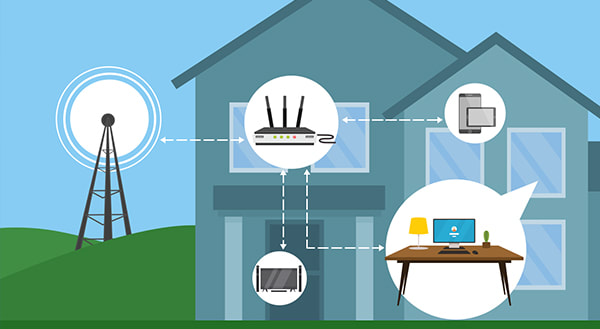|
Cybercrooks are disturbing people. Consider job-search scams. With the world economy reeling, bad actors are capitalizing on people’s desperation. They’re targeting those looking for work. There are steps you can take to filter out illegitimate opportunities. Cybercriminals like to be timely. Plus, appealing to people’s emotions improves their success rate, so it’s not that surprising that there’s been an uptick in job-listing scams in 2020. The bad guys are betting people will be less cautious when they see an attractive job offer. Don’t be their victim. Take these steps instead.
Read the job description carefully This means:
Be wary of instant hiring No matter the industry, few positions are filled immediately. You should expect the recruiting process to take time. If you are being pressured to take hiring steps urgently, that should be a red flag. Get an email congratulating you on earning the position before you’ve met with anyone? Proceed with caution. Question modes of communication Job scammers will rely on online chat interviews and email. If you don't speak in person with someone, it will be more difficult for you to confirm legitimacy. With emails, read the return address carefully. A scam job might use a close approximation to a big brand to add credibility. (You have to look closely to distinguish between nationalbank.com and nationlbank.com.) A good strategy is to search the company’s website for a job listing. If you don’t see the role you’re interested in posted, investigate further. Don’t pay for a job opportunity Don't pay an upfront fee for a background check, uniform, or some other testing or training. Don't provide any of your private personal information at the outset either. Don’t send tax or banking details before a formal offer of employment. Even then, be aware that some scammers take it from start to finish, including interview and job offer. Trust your instincts If the job sounds amazing, and you can’t believe how perfect it is, scrutinize the posting. A listing posting an exorbitant fee for easy work or telling you about the stupendous success of another candidate is likely a fraud. Confirm standard job expectations and salary with an online search of career listings. Falling prey to a job or other cyberfraud can leave you vulnerable to more than disappointment. Victims report loss of money, identity theft, or computer hacking, and more. An IT expert can help with security patches and system upgrades to keep your devices and network safe. A few months ago we thought working from home would be temporary: a couple of weeks of remote work was going to help corral this coronavirus thing, and we’d get back to usual. Now we know better, and the things we could put up with in the short term loom as bigger challenges. Poor internet connectivity is one of those.
Many home internet connections were fine before. Someone in the family could be streaming Netflix, and another person could be checking email or paying bills – no biggie. Yet the demands on the internet connection have grown exponentially. People still want to do all those things, but students are also connecting to online learning platforms. Employees are logging in to video conferences, too. Many businesses and their employees have seen the benefits of working from home during the pandemic. However, as remote work becomes a long-term solution, people can’t continue making do with subpar internet connectivity. What can be done? Improving Internet Connectivity Internet connections vary widely depending on where you are. You could enjoy blazing fast internet that allows you to upload large files in minutes even while someone else blasts zombies in a multi-player video game. Yet a few streets away, a user lacks the bandwidth to participate in a conference call without connectivity issues. Home office internet connectivity depends on several factors, one of which is your internet service provider (ISP). Some ISPs simply aren’t as good. They may be cheaper, but they could be overselling their capabilities, which results in slowdowns at night. Higher-priced ISPs are less likely to have this problem. You may gain speed by simply switching to a different provider. The kind of network connectivity available is also a consideration. Perhaps your network provider’s signal is carried over copper wiring. If that’s the case, the internet signal degrades with distance. Those physically further away from the exchange will have slower internet than someone closer in. Unless you want to move houses, there’s not a lot you can do about this one. Still, fiber-optic cables are increasingly available in different areas. The ISPs charge more for these connections, but reliability benefits. Fiber loses only 3% of its signal over distances greater than 100 meters, whereas copper can lose up to 94%! At the same time, fiber is more durable and lacks the conductivity issues of copper, which can be vulnerable to power lines, lightning, and signal-scrambling. Another factor may be the plan you’re on. The ISP may have a 100+ Mbps plan, and you’re only on the 12 Mbps. That was enough before, but you may want to upgrade now that so many devices are connecting to the internet at the same time. Find out also if your plan is subject to a data cap. Some ISPs set up a data threshold limiting the amount of data you can use in a month or at particular times of the day. Get Expert Insight into Your Internet You might also benefit from upgrading your home internet connections. An IT expert can come in and take a look at the hardware you’re using to get online. There could be some quick connectivity gains with an upgraded router or gateway, or moving your wireless access points. Our IT gurus can also determine whether a Wi-Fi booster or mesh solution would help. In your area, you may have a 4G or 5G wireless option. It’s more expensive but can be another way to get the speed you need. Point-to-point Wi-Fi might also be an option. If you’re within range of a location providing business-grade internet, it may work to set up a dish on your roof. Of course, geography matters in this case, as you need a line-of-sight connection to the signal source. Now that work from home is stretching long term, consider how you can upgrade your internet connection at home. Support remote work, student online learning, and other ways you use your bandwidth by getting the best you can. Give us a call at 262-515-9499 to learn more! |
Tech Force BlogWe provide you with important, practical tips and insight for your technology and networks for both home and business. Archives
March 2024
Categories
All
|
Get in touch with us! |
See what our clients have to say...
Very pleased with Tech Force! We've been using Tech Force for over four years now. We've had a lot of different people do computer and IT stuff for us, but Tech Force is the first to come in and implement a plan. The plan was executed and we've had no problems. |
More Client Reviews
Read Our Customer Reviews |
We service Racine, Mount Pleasant, Sturtevant, Wind Point, Union Grove, Elmwood Park, Franksville, Caledonia, Kenosha, Somers, Pleasant Prairie, Bristol, Parkside, Oak Creek and Franklin, WI and surrounding areas. Copyright © 2009-2024 Tech Force Computer Service, LLC.



 RSS Feed
RSS Feed
